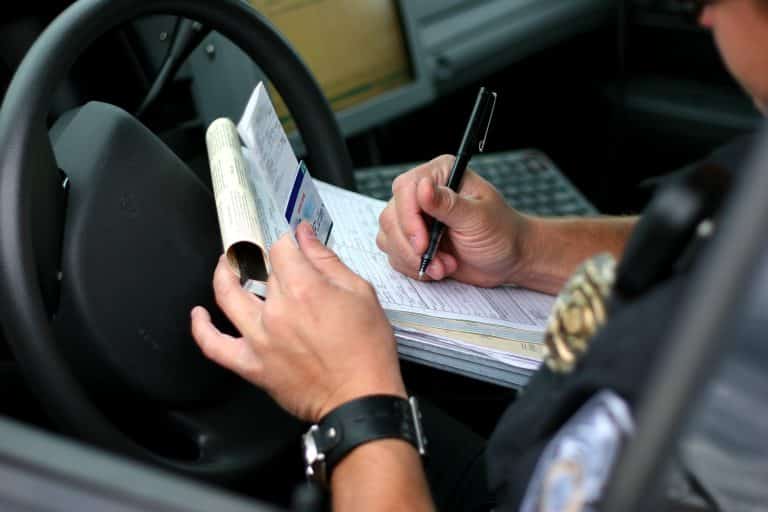As I’ve said in so many articles in the past, especially when discussing police conduct, the vast majority of civilian interactions with police are peaceful. That’s because the vast majority of police and civilians are law-abiding, decent people.
However, many times interaction with police is much more unpleasant than it should be. A person may walk away feeling the officer behaved inappropriately or, worse, violated his or her rights. In such situations, a person can file a complaint against the officer(s) in question. If you think this applies to you, be sure to read this first so that you understand what to do and what to expect.
How to File a Complaint Against an Officer
Get the Officer’s Information. In order to file a complaint, you must know who the officer in question is. Specifically, you need his/her name (at least a last name), badge number, and the agency or department he/she works for (e.g., the NYPD, Transit Authority, State Trooper). A report is considered invalid without this information.
Thankfully, an officer must provide these details to anyone who asks. If your complaint stems from a traffic stop, then most of that information—name, rank, shield number, and command—will be on the ticket itself.
Although not required, it is also very helpful to take note of any other identifying information, such as whether he or she was in an unmarked police vehicle and the license plate number.
Take Note of Reason for the Interaction. This seems obvious but you must be able to convey the circumstances of the interaction. Were you approached on the street, involved in a traffic stop, or did the officer knock on your door? You should also note the date and time that the interaction occurred.
Go to the Officer’s Reporting Precinct. It is possible for a report to be taken over the phone or even over the internet. However, it is much more credible if the complainant files the report in person.
Tell the desk sergeant at the precinct that you are there to file a complaint. Any police officer can refer you to a supervisor, who will take the complaint. If the officer who comes to take your complaint is not a supervisor, you can ask for one, but this isn’t necessary for the complaint to be processed.
Once the complaint comes in, the supervisor determines if the situation is considered discourteous or misconduct. It then goes to the commanding officer, who is the highest-ranking member of the precinct. He or she has to know everything that is going on in the precinct. Next, an investigation is ordered. If the allegations are serious enough, Internal Affairs may be brought in to handle it, but most are addressed internally.
Get Your Report Number. Every report includes a number that identifies it. You will need this if you want to follow up later and get the results of the report.
Be Patient and Don’t Expect a Call Back. People are often dismayed to learn that the police are not going to volunteer the outcome of the investigation. That doesn’t mean it wasn’t taken seriously. If you call the precinct and provide the report number and your contact information, someone will call you back and tell you the results of the investigation. This may take a couple of days, so be patient. Also, it’s important to realize that investigating a complaint is not a quick process; it can take between three and six months for simple cases. For more complex situations, it can take up to a year or two.
Brace Yourself for Disappointment. I don’t like to say this, but the reality is that most people expect their complaints to have a different kind of impact than they do. That’s not because police are corrupt or go easy on each other. Rather, it’s because most people don’t understand how a complaint affects an officer.
Too many people expect a suspension or firing to be the final outcome, but this only happens in the most serious misconduct cases. More often complaints end up as a note in an officer’s file. This may seem anti-climactic for the complainant, but it’s a bigger deal to the officer than you might think. In the long run, too many complaints can prevent a promotion or result in a change of duties. That can have a real impact on the officer.
In more serious cases, the officer may be reprimanded. Again, this is a real serious consequence for the officer, but to many civilians, it might seem like the department is going easy on him or her. This is not the case. Only in the most egregious of circumstances might an officer be suspended, demoted, or fired.

Do I Need An Attorney to File a Complaint?
For situations involving simple discourtesy, it does not make sense to hire an attorney. However, if the officer has committed what you feel is serious misconduct, then it may be worth speaking with an attorney before filing the complaint. While I hope no one reading this has been so egregiously harmed by an officer that they feel the need to file a lawsuit, having the complaint in the system first will help your case.
Things to Keep in Mind When Filing a Complaint Against Police
Your Complaint MUST Be Taken. You cannot be denied the right to file a complaint. Every officer knows this. If the person you speak to does not send someone to take the complaint, be calm, patient, and persistent. It doesn’t matter what the complaint is about: the officer was rude, he/she profiled you, searched your car without consent, etc. They must accept the complaint.
Police Consider This Part of the Job. While no one wants to have a complaint filed against them, most officers accept that complaints are part of the job. There’s no need to worry that the officer in question will be upset and take it personally.
A Witness Can File a Complaint. You do not have to be the one who interacts with police to file a complaint. As long as you have the details mentioned above and follow the process, you can file a complaint as a witness or interested party (such as a spouse or loved one).
There Is No Time Limit. A person does not have to file a complaint within a set timeframe in order for it to be valid. That said, you should file as soon as possible after the incident. The more time that goes by, the more you may need to explain why you waited to file.
Don’t Threaten to File a Complaint. If you feel you’ve been wronged by police, don’t waste time threatening an officer with a potential complaint. I once pulled over a young man, and he said he would report me to a specific Internal Affairs group. But that didn’t matter to me. I knew I was right. My dash camera was on and I had caught him cutting the light (i.e., driving through a corner parking lot to avoid waiting at the red light). If he had followed through, that investigation would have found me innocent.
That’s the thing: your complaint is either valid or not. If it is, you don’t need to make a threat—just do it. If the officer is in the wrong, he or she will be told so and suffer the appropriate consequences.
When to Go Directly to Internal Affairs
I’ve mentioned Internal Affairs a couple of times in this article. It’s worth noting that a person can go directly to IA with their complaint. However, IA only gets involved when a person alleges serious misconduct, particularly criminal behavior by police officers. That may include assault (i.e. an improper use of force), using or selling drugs, sexual harassment, and the like.
Note that these are the kinds of complaints that, if deemed valid, are most often going to result in suspension or termination (as well as possible criminal charges). However, these investigations also take the longest in many cases.





